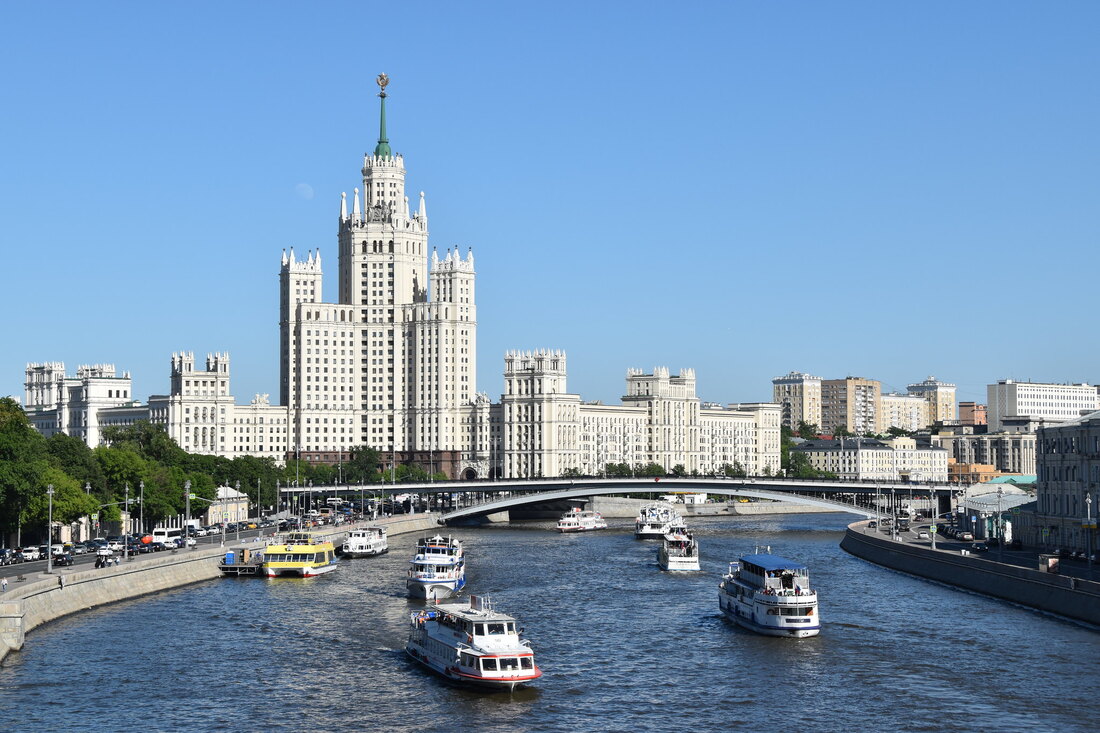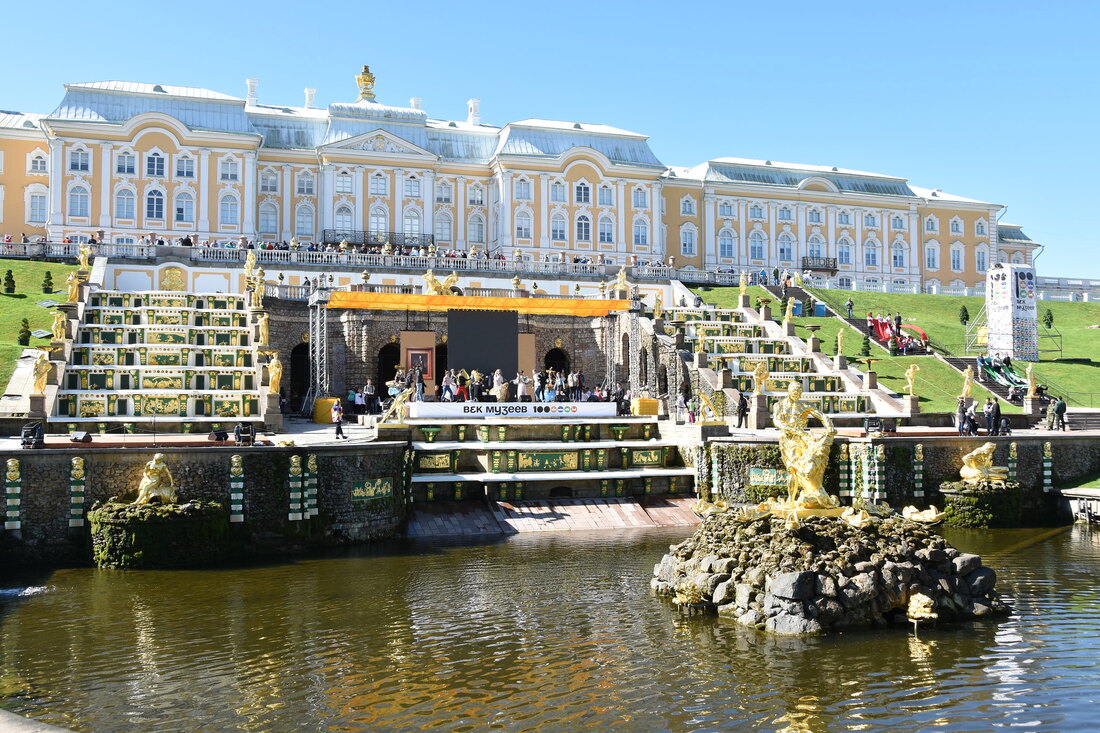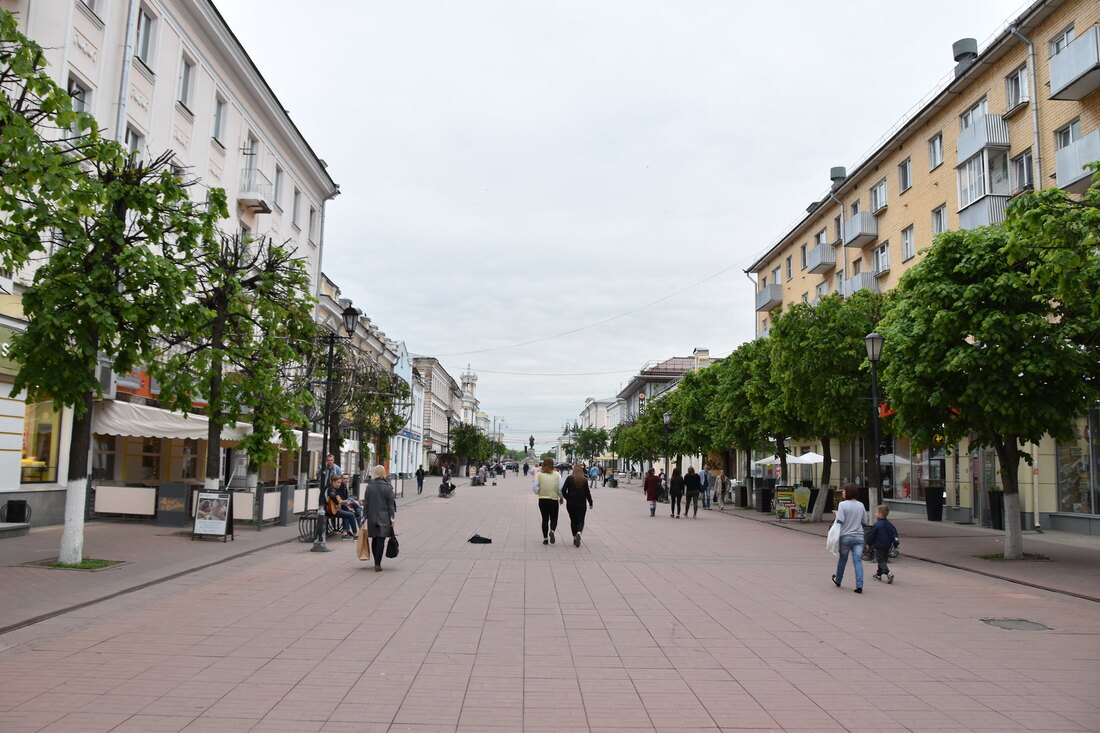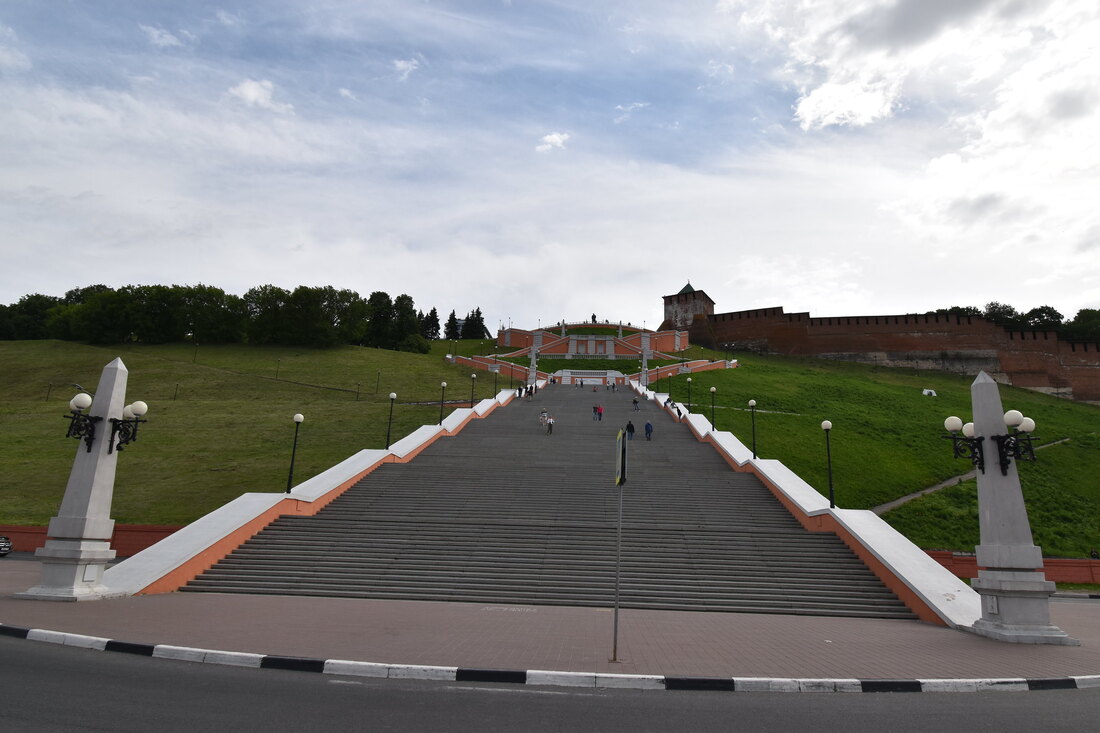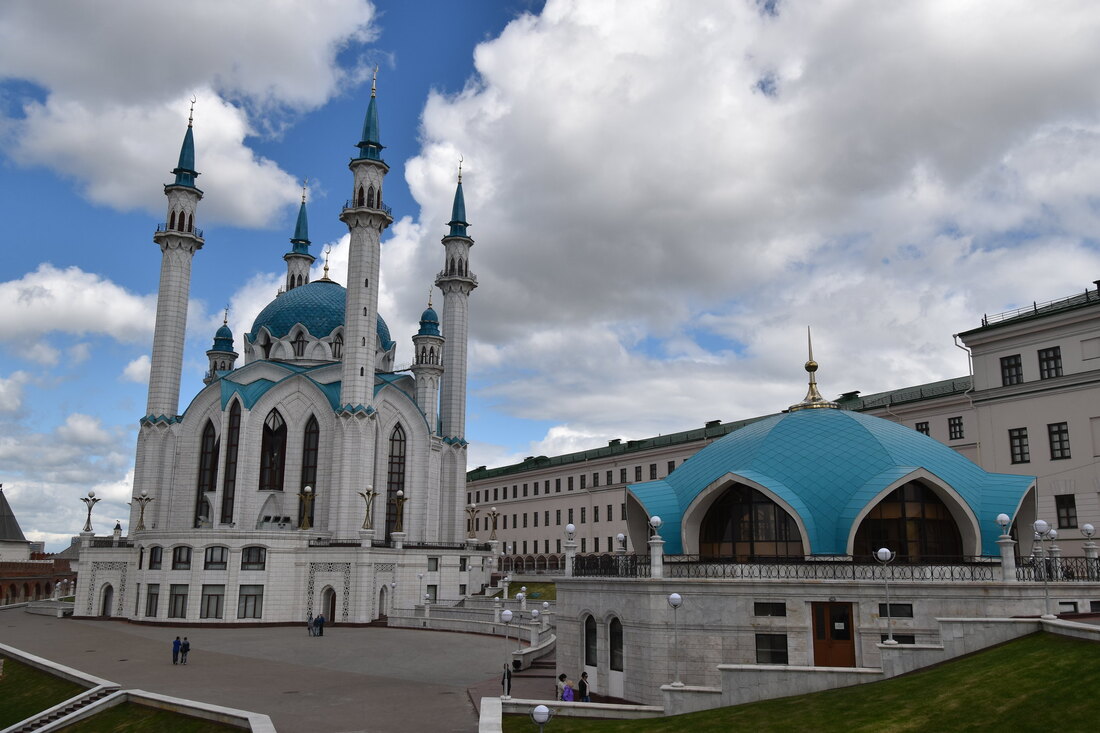Russia may be one of the first foreign countries of which I was cognizant. I can remember images of row after row of missile transport trucks flashing across the television screen during a mid-eighties episode of 60 Minutes. In my mind the country came to represent everything the U.S. wasn't - an authoritative government that controlled everything from the news to food to clothing to music. In the 1990s Boris Yeltsin made the country a late night comedy punching bag. In 2000 Vladimir Putin brought back the mystique, for better and/or worse. Russia was back in the headlines.
I never learned about Russian history in school. The European history classes focused on the UK, France, Germany, Spain. The ancient Egyptians, Greeks, and Romans. Never anything about the Russians until WWII and the rise of the Soviet Union. Reading about Russian history was this forbidden fruit - just the term "Tsar" instead of King provided a glimpse of a culture that looked familiar yet seemed completely different. The cyrillic handwriting with the backwards letters. The orthodox religion and onion domed churches. Everything was the same except it wasn't.
What was this culture hiding behind the iron curtain? Not visiting Russia began to gnaw at me. It was a place I really wanted to visit but never wound up booking a ticket. I looked at other countries like Lithuania, Georgia, and Kazakhstan, all these former Soviet countries, and finally decided why visit these Soviet knockoffs instead of going to see the real thing. Finally in May 2018 I packed my bags, boarded the plane, and headed to Russia.
A funny thing happens when you tell people you are heading to Russia. People wonder if you'll be safe. If you are a spy. Why you are going. The Russian mystique wasn't limited to me. It's a completely different reaction than telling someone you are heading to Italy or China. Everyone has this view of Russia from years and years of American politics, military adventures, and news yet all we know about Russia are the stereotypes. When you are going to Italy no one ever says be sure to try the spaghetti. I couldn't wait to see behind the iron curtain.
And so...it's a bit sad to say this...but after ten days in Russia I left thinking Russia was just like any other country. It was a great trip...Russia is awesome the way Toronto is awesome...just not the way India and China are awesome. There's not much behind the iron curtain: McDonald's and KFCs. Russia's culture had been steamrolled by the West. I saw no less than ten people wearing a white t-shirt with a red Levi's logo. Looney Tunes and Jurassic Park t-shirts were for sale in the mall. Where was the Putin propaganda? You wouldn't even know he was the all-powerful leader of Russia if it weren't for cheap tourist tchotchkes. The only souvenir I wanted was a shirt with Cyrillic writing - I couldn't find one until the second to last day in Nizhny Novgorod. Was the mystique nothing more than mystique? Had the Soviet Union projected strength and a powerful culture all those years with nothing special behind the iron curtain? Is Putin being a pain because that's the only way Russia stays relevant? The only way for him and Russia to be mentioned in the news and remain in the collective minds of the rest of the world? I think so. The mystique. The Tsars. The Soviet Union. The Iron Curtain. Gone.
I never learned about Russian history in school. The European history classes focused on the UK, France, Germany, Spain. The ancient Egyptians, Greeks, and Romans. Never anything about the Russians until WWII and the rise of the Soviet Union. Reading about Russian history was this forbidden fruit - just the term "Tsar" instead of King provided a glimpse of a culture that looked familiar yet seemed completely different. The cyrillic handwriting with the backwards letters. The orthodox religion and onion domed churches. Everything was the same except it wasn't.
What was this culture hiding behind the iron curtain? Not visiting Russia began to gnaw at me. It was a place I really wanted to visit but never wound up booking a ticket. I looked at other countries like Lithuania, Georgia, and Kazakhstan, all these former Soviet countries, and finally decided why visit these Soviet knockoffs instead of going to see the real thing. Finally in May 2018 I packed my bags, boarded the plane, and headed to Russia.
A funny thing happens when you tell people you are heading to Russia. People wonder if you'll be safe. If you are a spy. Why you are going. The Russian mystique wasn't limited to me. It's a completely different reaction than telling someone you are heading to Italy or China. Everyone has this view of Russia from years and years of American politics, military adventures, and news yet all we know about Russia are the stereotypes. When you are going to Italy no one ever says be sure to try the spaghetti. I couldn't wait to see behind the iron curtain.
And so...it's a bit sad to say this...but after ten days in Russia I left thinking Russia was just like any other country. It was a great trip...Russia is awesome the way Toronto is awesome...just not the way India and China are awesome. There's not much behind the iron curtain: McDonald's and KFCs. Russia's culture had been steamrolled by the West. I saw no less than ten people wearing a white t-shirt with a red Levi's logo. Looney Tunes and Jurassic Park t-shirts were for sale in the mall. Where was the Putin propaganda? You wouldn't even know he was the all-powerful leader of Russia if it weren't for cheap tourist tchotchkes. The only souvenir I wanted was a shirt with Cyrillic writing - I couldn't find one until the second to last day in Nizhny Novgorod. Was the mystique nothing more than mystique? Had the Soviet Union projected strength and a powerful culture all those years with nothing special behind the iron curtain? Is Putin being a pain because that's the only way Russia stays relevant? The only way for him and Russia to be mentioned in the news and remain in the collective minds of the rest of the world? I think so. The mystique. The Tsars. The Soviet Union. The Iron Curtain. Gone.
RUSSIA DESTINATIONS
RUSSIA BACKGROUND
FOOD
Russian food consists of borsch…and borsh. And exotic meats like bear and horse.
If you don’t plan ahead it can actually be a little tricky finding Russian cuisine in Russia. The easiest option are a trio of chain restaurants: Teremok, Varenichnaya No. 1, and Grabli. Each of these offers the basic Russian staples in a fast food, sit-down, and cafeteria style setting. They offer pelmeni, the Russian take on raviolis, dumplings, etc.
Russia had good, not necessarily great restaurants. Moscow’s White Rabbit is listed as a Top 50 restaurant in the world and serves Russian cuisine – I found it a bit disappointing. Meals were relatively cheap – my most expensive meal was at White Rabbit and three courses and a couple of drinks only set me back $60. I was eating at St. Petersburg’s and Moscow’s best restaurants and rarely spending more than $15 a meal. I found blogs at The Village to be the most useful in helping me to determine where to eat. I've listed the most useful entries on each of the location subpages.
There’s a heavy emphasis on southern cuisine – in Russia that means Georgian. I assume that historically Georgia had more bountiful harvests because their cuisine was much better and is a great ethnic cuisine of the world that receives very little attention. I was back in the US for only a few days when I began craving Khachapuri, which is a pizza / bread combo. Fortunately there’s a restaurant called Georgian Bread in Northeast Philly that I’ll need to visit soon.
Kazan is home to the Tatar culture and a slightly different cuisine, including horse. They also have desserts and other sweets, the most popular of which is Chak Chak, a fluffy rice cake dipped in honey type of thing.
I scoured supermarkets for unique ice cream, potato chips, and other snacks but only saw the standard western offerings like Magnum ice cream bars and a variety of less than enticing Lays potato chip flavors. The supermarkets often had a butchery in the meat section.
Russia has slowly started to embrace the microbrewery and local coffee roasting trends. In-Bev’s products take center stage at most Russian restaurants and bars so there’s a bit of hunting that needs to be done to find local beers. The local coffee roasting culture has been a bit slower to be embraced by Russians. To the extent coffee shops exist they followed a minimalist architecture style. Americano’s ran $3-$4. There’s several coffee chains, however, their coffee is nothing spectacular. Coffeemania is decent but way too expensive – their coffee cost $5 for half the serving size.
HOSTELS
I stayed in hostels all nights. The hostels in St. Petersburg and Moscow cost $20/night, which I’m not sure if that is a good deal or not - the hostels were more expensive and not as nice compared to Asia, however, it's been a while since I stayed in a European hostel so maybe the Russia hostels were decent. When booking a visa I needed to have the hostels reserved in advance and it seemed to be an easier process than finding an Airbnb. In hindsight I think I should have cancelled the hostels after receiving my visa and booked an Airbnb. The hostels all had decent ratings, however, the place I stayed at in Moscow was pretty bad. It was conveniently located, right by the Tverskaya metro station, however, the sleeping arrangements, bathroom, and shower situation were not up to the 9.8 out of 10.0 rating.
RUSSIA VISA PROCESS
It's not difficult to obtain a Russia visa. It's just time consuming and expensive. I used a service, CIBT, rather than visiting the embassy. This increased the cost, although not by much given the cost of making two round trips to NYC would have quickly added up. It takes about an hour to complete the online form for the Russia embassy. It's the equivalent of loading a resume to a job site that doesn't have a LinkedIn API connection to quickly populate data fields. Oddly similar information too.
I saved some money by obtaining my Russian invitation letter through an agency associated with my hostel - that cost about $20 vs. the $100+ CIBT was charging. The letter process seems really sketchy, sketchy enough that my credit card company thought the charge was fraudulent, but everything worked out fine. There's hundreds of companies offering these services so i at least had some comfort that my hostel was associated with one rather than just.going with whatever popped up first in a google search. A PDF of the invitation letter was sent to my email immediately after the payment was submitted.
The expedited process took five business days beginning with Day 1 mailing the information to CIBT and Day 5 the passport arriving back at my house. Final cost $550.
IN COUNTRY TRANSIT
Russia is a relative easy country to get around. The Soviet Union emphasized the community over the individual so the public transportation from trains to metros to buses is pretty good. The only warning being that distances covered are relatively extreme and become more extreme the farther East you head. For example, I thought about heading to Yekatarinburg from Kazan except that it was a 15 hour train ride. The next major city, Novosibirsk, is 22 hours away. My trip would have become nothing more than a series of train rides, which is a decent trip if that's the intention.
I used Real Russia to book my train tickets. Real Russia is a UK based travel agency. I looked briefly into booking tickets directly through Russia Railways but opted for the UK agency to be able to print my tickets in advance and thought it was an easier process. Going through the UK agency probably more than doubled my costs. I paid a combined $283 For high-speed trains from St. Petersburg to Tver, Tver to Moscow, Moscow to Nizhny Novgorod and a sleeper train from Nizhny Novgorod to Kazan. Most people won't have the Tver to Moscow leg, rather just going straight to/from St. Petersburg. That leg cost $60.
The trains were nice and modern. High-speed rail covers cities between St. Petersburg and Nizhny Novgorod and a few places south of Moscow. Those trains cut travel time by at least half. Riding the trains are no different than anywhere else. Show your ticket. Show your ID. No problems.
Once in the city it's also easy to move around. St. Petersburg and Moscow have extensive metro systems. In Nizhny Novogorod and Kazan you'll need to either walk or take a bus to reach the city centers or a combination of the two. Once in the city center, Kazan has a metro system that connects the city's major attractions.
Going further afield outside of city centers requires some research of train schedules and fares but I had no problem reaching Vyborg and Sergiev Posad. For Vyborg I had someone at the hostel write out instructions to give to the ticket office so there wouldn't be any issues. Sergiev Posad is a popular enough designation I just purchased the train ticket on the spot. I timed the return from Sergiev Posad to Moscow poorly but used Google Maps to catch a bus.
The only time I used taxis was to/from airports and to a train station. I used an official counter at the airport and the hostel to book the taxis. Russia has Uber but the service is not as ubiquitous as the US. I saw a handful of drivers and thought most of the destinations were walkable. Again Google Maps is very helpful in finding bus routes.
SIM CARDS
While a SIM card and a local data plan may not be essential, it certainly makes it easier to get around and find restaurants. Google Maps was particularly helpful in finding buses when the train schedules didn't match when I wanted to leave a destination or it was too hot to walk or I was heading outside city centers.
Russia has several nationwide carriers. I used Tele 2 and found them to be reliable accept for a few areas when trains were in no man's land. To obtain a SIM card I went to a Tele 2 retail location and showed the cashier my passport. They had several plans and in my case the cashier spoke English and helped me install the card. For $5 I received 5GB of data - in the US that costs about $40. It took less than five minutes to pay for the card and be on my way - in the US it takes 30+ minutes.
Here's a blog entry with more detail: Purchasing a SIM Card
SAFETY
I though Russia was safe. I found Russians to be generally friendly. The country is more diverse than I expected so most people can't tell you are a tourist, let alone an American, until the begin talking to you in Russian. When people did find out I was an American, I held no intrigue - nobody asked a single political oriented question. It's difficult to understand the dynamics of Russian politics and economics on a two-week vacation. There's little, if any, Putin propaganda. There's virtually no advertising at all and unless there's a TV in the hostel there's not a good way to view the news. The one time I did view the news the lead story was about chemical run-off that ran into a pond. There was a brief mention of Trump before the local stories started.
Subway and train stations had security checkpoints. At subway stations, in most cases I was able to pass through through metal detectors without having to place my backpack through the baggage scanner. In train stations all bags were scanned prior to entering. There was also armed presence above ground and in public places. I don't believe this was an attempt at intimidation but rather their presence focused on preventing terrorist attacks.
After my return to the US I talked to a co-worker who's wife was Russian. He said that during a visit to Yekaterinburg, his wife's hometown, his wife and mother-in-law were both retained by local police until they paid a $1,000 "fine" for not having registering in the country upon arrival. So while I didn't have any issues, it doesn't mean that my experience is the rule.
FOOD
Russian food consists of borsch…and borsh. And exotic meats like bear and horse.
If you don’t plan ahead it can actually be a little tricky finding Russian cuisine in Russia. The easiest option are a trio of chain restaurants: Teremok, Varenichnaya No. 1, and Grabli. Each of these offers the basic Russian staples in a fast food, sit-down, and cafeteria style setting. They offer pelmeni, the Russian take on raviolis, dumplings, etc.
Russia had good, not necessarily great restaurants. Moscow’s White Rabbit is listed as a Top 50 restaurant in the world and serves Russian cuisine – I found it a bit disappointing. Meals were relatively cheap – my most expensive meal was at White Rabbit and three courses and a couple of drinks only set me back $60. I was eating at St. Petersburg’s and Moscow’s best restaurants and rarely spending more than $15 a meal. I found blogs at The Village to be the most useful in helping me to determine where to eat. I've listed the most useful entries on each of the location subpages.
There’s a heavy emphasis on southern cuisine – in Russia that means Georgian. I assume that historically Georgia had more bountiful harvests because their cuisine was much better and is a great ethnic cuisine of the world that receives very little attention. I was back in the US for only a few days when I began craving Khachapuri, which is a pizza / bread combo. Fortunately there’s a restaurant called Georgian Bread in Northeast Philly that I’ll need to visit soon.
Kazan is home to the Tatar culture and a slightly different cuisine, including horse. They also have desserts and other sweets, the most popular of which is Chak Chak, a fluffy rice cake dipped in honey type of thing.
I scoured supermarkets for unique ice cream, potato chips, and other snacks but only saw the standard western offerings like Magnum ice cream bars and a variety of less than enticing Lays potato chip flavors. The supermarkets often had a butchery in the meat section.
Russia has slowly started to embrace the microbrewery and local coffee roasting trends. In-Bev’s products take center stage at most Russian restaurants and bars so there’s a bit of hunting that needs to be done to find local beers. The local coffee roasting culture has been a bit slower to be embraced by Russians. To the extent coffee shops exist they followed a minimalist architecture style. Americano’s ran $3-$4. There’s several coffee chains, however, their coffee is nothing spectacular. Coffeemania is decent but way too expensive – their coffee cost $5 for half the serving size.
HOSTELS
I stayed in hostels all nights. The hostels in St. Petersburg and Moscow cost $20/night, which I’m not sure if that is a good deal or not - the hostels were more expensive and not as nice compared to Asia, however, it's been a while since I stayed in a European hostel so maybe the Russia hostels were decent. When booking a visa I needed to have the hostels reserved in advance and it seemed to be an easier process than finding an Airbnb. In hindsight I think I should have cancelled the hostels after receiving my visa and booked an Airbnb. The hostels all had decent ratings, however, the place I stayed at in Moscow was pretty bad. It was conveniently located, right by the Tverskaya metro station, however, the sleeping arrangements, bathroom, and shower situation were not up to the 9.8 out of 10.0 rating.
RUSSIA VISA PROCESS
It's not difficult to obtain a Russia visa. It's just time consuming and expensive. I used a service, CIBT, rather than visiting the embassy. This increased the cost, although not by much given the cost of making two round trips to NYC would have quickly added up. It takes about an hour to complete the online form for the Russia embassy. It's the equivalent of loading a resume to a job site that doesn't have a LinkedIn API connection to quickly populate data fields. Oddly similar information too.
I saved some money by obtaining my Russian invitation letter through an agency associated with my hostel - that cost about $20 vs. the $100+ CIBT was charging. The letter process seems really sketchy, sketchy enough that my credit card company thought the charge was fraudulent, but everything worked out fine. There's hundreds of companies offering these services so i at least had some comfort that my hostel was associated with one rather than just.going with whatever popped up first in a google search. A PDF of the invitation letter was sent to my email immediately after the payment was submitted.
The expedited process took five business days beginning with Day 1 mailing the information to CIBT and Day 5 the passport arriving back at my house. Final cost $550.
IN COUNTRY TRANSIT
Russia is a relative easy country to get around. The Soviet Union emphasized the community over the individual so the public transportation from trains to metros to buses is pretty good. The only warning being that distances covered are relatively extreme and become more extreme the farther East you head. For example, I thought about heading to Yekatarinburg from Kazan except that it was a 15 hour train ride. The next major city, Novosibirsk, is 22 hours away. My trip would have become nothing more than a series of train rides, which is a decent trip if that's the intention.
I used Real Russia to book my train tickets. Real Russia is a UK based travel agency. I looked briefly into booking tickets directly through Russia Railways but opted for the UK agency to be able to print my tickets in advance and thought it was an easier process. Going through the UK agency probably more than doubled my costs. I paid a combined $283 For high-speed trains from St. Petersburg to Tver, Tver to Moscow, Moscow to Nizhny Novgorod and a sleeper train from Nizhny Novgorod to Kazan. Most people won't have the Tver to Moscow leg, rather just going straight to/from St. Petersburg. That leg cost $60.
The trains were nice and modern. High-speed rail covers cities between St. Petersburg and Nizhny Novgorod and a few places south of Moscow. Those trains cut travel time by at least half. Riding the trains are no different than anywhere else. Show your ticket. Show your ID. No problems.
Once in the city it's also easy to move around. St. Petersburg and Moscow have extensive metro systems. In Nizhny Novogorod and Kazan you'll need to either walk or take a bus to reach the city centers or a combination of the two. Once in the city center, Kazan has a metro system that connects the city's major attractions.
Going further afield outside of city centers requires some research of train schedules and fares but I had no problem reaching Vyborg and Sergiev Posad. For Vyborg I had someone at the hostel write out instructions to give to the ticket office so there wouldn't be any issues. Sergiev Posad is a popular enough designation I just purchased the train ticket on the spot. I timed the return from Sergiev Posad to Moscow poorly but used Google Maps to catch a bus.
The only time I used taxis was to/from airports and to a train station. I used an official counter at the airport and the hostel to book the taxis. Russia has Uber but the service is not as ubiquitous as the US. I saw a handful of drivers and thought most of the destinations were walkable. Again Google Maps is very helpful in finding bus routes.
SIM CARDS
While a SIM card and a local data plan may not be essential, it certainly makes it easier to get around and find restaurants. Google Maps was particularly helpful in finding buses when the train schedules didn't match when I wanted to leave a destination or it was too hot to walk or I was heading outside city centers.
Russia has several nationwide carriers. I used Tele 2 and found them to be reliable accept for a few areas when trains were in no man's land. To obtain a SIM card I went to a Tele 2 retail location and showed the cashier my passport. They had several plans and in my case the cashier spoke English and helped me install the card. For $5 I received 5GB of data - in the US that costs about $40. It took less than five minutes to pay for the card and be on my way - in the US it takes 30+ minutes.
Here's a blog entry with more detail: Purchasing a SIM Card
SAFETY
I though Russia was safe. I found Russians to be generally friendly. The country is more diverse than I expected so most people can't tell you are a tourist, let alone an American, until the begin talking to you in Russian. When people did find out I was an American, I held no intrigue - nobody asked a single political oriented question. It's difficult to understand the dynamics of Russian politics and economics on a two-week vacation. There's little, if any, Putin propaganda. There's virtually no advertising at all and unless there's a TV in the hostel there's not a good way to view the news. The one time I did view the news the lead story was about chemical run-off that ran into a pond. There was a brief mention of Trump before the local stories started.
Subway and train stations had security checkpoints. At subway stations, in most cases I was able to pass through through metal detectors without having to place my backpack through the baggage scanner. In train stations all bags were scanned prior to entering. There was also armed presence above ground and in public places. I don't believe this was an attempt at intimidation but rather their presence focused on preventing terrorist attacks.
After my return to the US I talked to a co-worker who's wife was Russian. He said that during a visit to Yekaterinburg, his wife's hometown, his wife and mother-in-law were both retained by local police until they paid a $1,000 "fine" for not having registering in the country upon arrival. So while I didn't have any issues, it doesn't mean that my experience is the rule.


